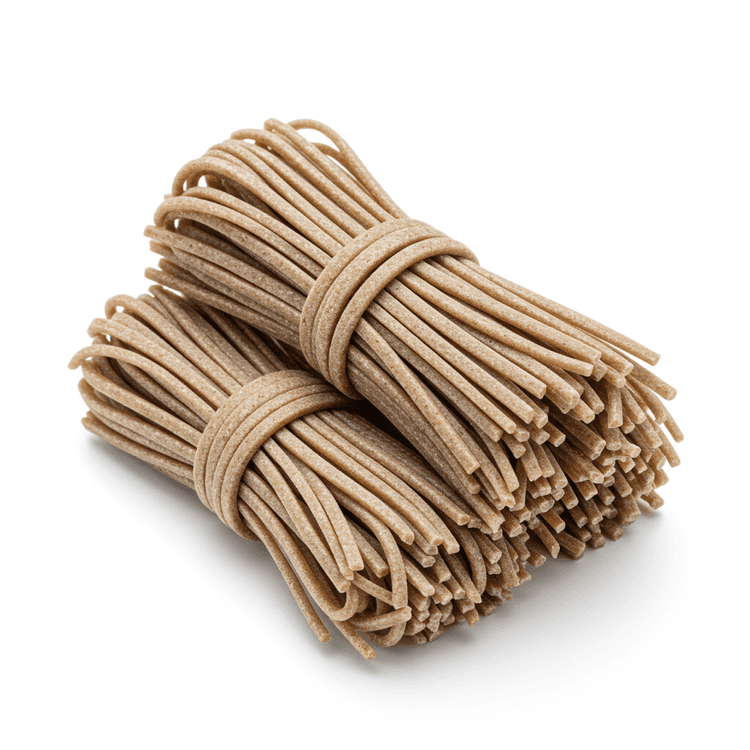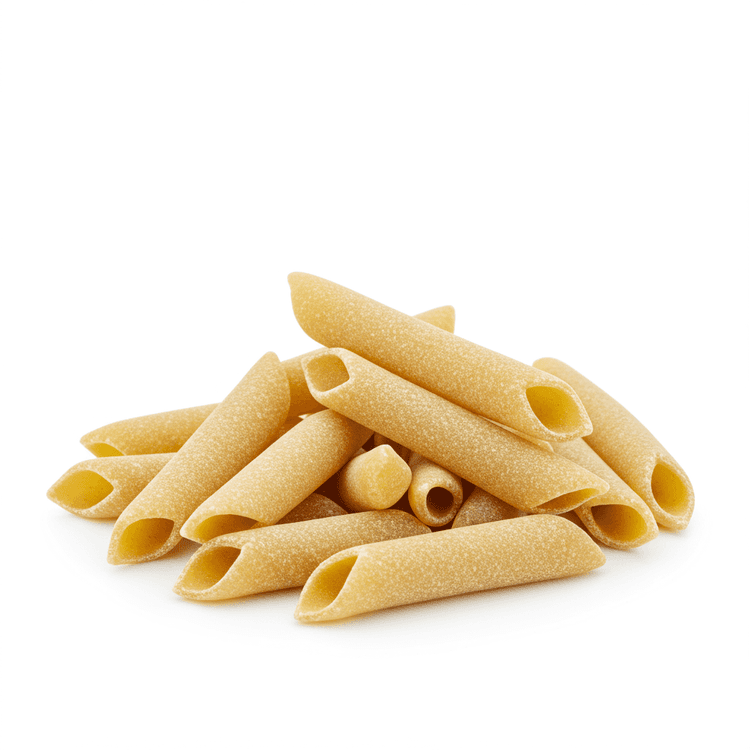
Soba Noodle
Soba noodles are thin, Japanese noodles made primarily from buckwheat flour, giving them a nutty, earthy flavor and a slightly chewy texture. Their light brown color and delicate appearance make them a staple in Japanese cuisine, often enjoyed in both hot and cold dishes. Rich in nutrients and naturally gluten-free (depending on the buckwheat-to-wheat ratio), soba noodles are a versatile ingredient that pairs well with broths, sauces, and fresh vegetables. Perfect for those seeking healthy, authentic Asian flavors, soba noodles are a popular choice for quick, wholesome meals.
Common Uses
- Toss soba noodles with soy sauce, sesame oil, and fresh vegetables for a quick and healthy cold noodle salad.
- Serve soba noodles in a warm, flavorful broth with toppings like scallions, mushrooms, and boiled eggs for a comforting noodle soup.
- Stir-fry soba noodles with protein such as chicken, shrimp, or tofu, along with vegetables and a savory sauce for a balanced one-pan meal.
- Use soba noodles as a base for a Japanese-inspired noodle bowl, topped with grilled fish, avocado, and a drizzle of ponzu sauce.
- Enjoy soba noodles chilled with a dipping sauce made from soy sauce, mirin, and dashi for a refreshing summer dish called zaru soba.
Nutrition (per serving)
Nutrition (per serving)
Calories
113.0kcal (5.65%)
Protein
5.0g (9.96%)
Carbs
24.4g (8.89%)
Sugars
0.4g (0.8%)
Healthy Fat
0.1g
Unhealthy Fat
0.0g
% Daily Value based on a 2000 calorie diet
Nutrition (per serving)
Calories
113.0kcal (5.65%)
Protein
5.0g (9.96%)
Carbs
24.4g (8.89%)
Sugars
0.4g (0.8%)
Healthy Fat
0.1g
Unhealthy Fat
0.0g
% Daily Value based on a 2000 calorie diet
Health Benefits
- Rich in complex carbohydrates, providing sustained energy and supporting healthy digestion.
- Contains buckwheat, which is gluten-free and may help improve heart health and lower cholesterol levels.
- High in fiber, promoting gut health and aiding in weight management.
- A good source of plant-based protein, supporting muscle repair and overall wellness.
- Contains essential minerals like magnesium and manganese, which contribute to bone health and metabolic function.
- Low in fat and calories, making it a great option for balanced meals and weight-conscious diets.
Substitutes
Chefadora AI is here.
Experience smarter, stress-free cooking.
Storage Tips
Store dry soba noodles in a cool, dry place, such as a pantry or cupboard, away from direct sunlight and moisture. Once opened, keep them in an airtight container to maintain freshness. Cooked soba noodles should be refrigerated in a sealed container and consumed within 2-3 days for optimal flavor and texture. Avoid freezing cooked noodles, as it can alter their consistency.
Marnirni-apinthi Building, Lot Fourteen,
North Terrace, Adelaide, South Australia, 5000
Australia

